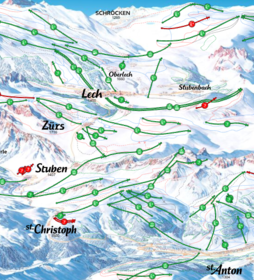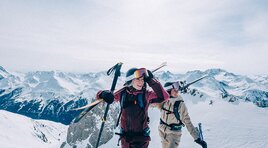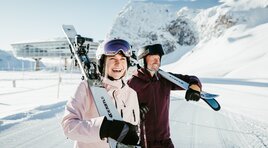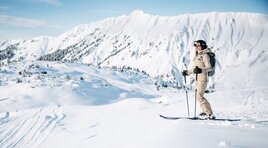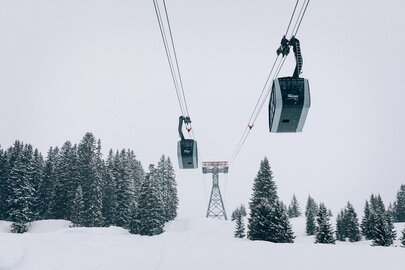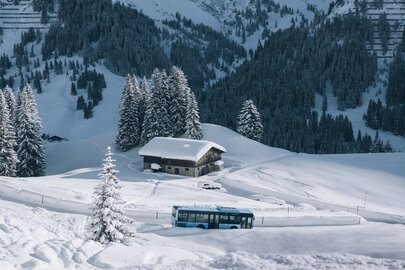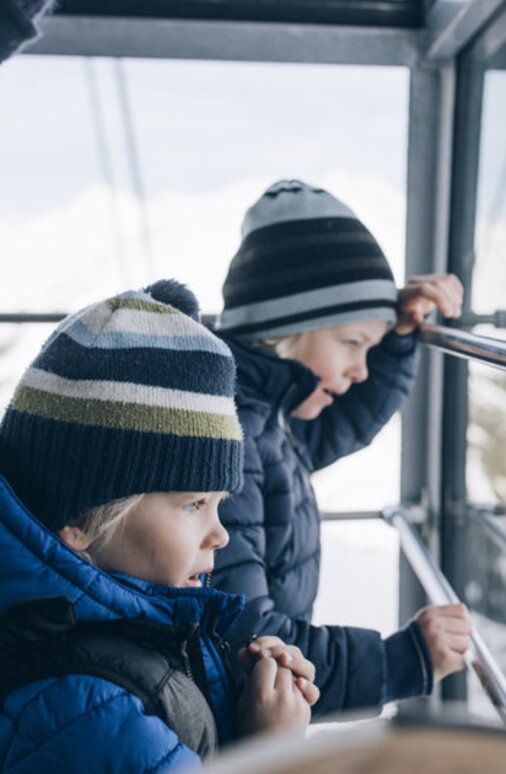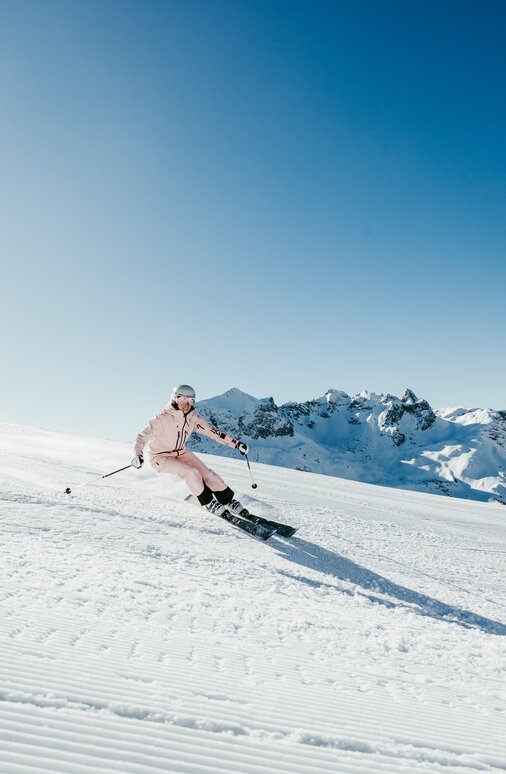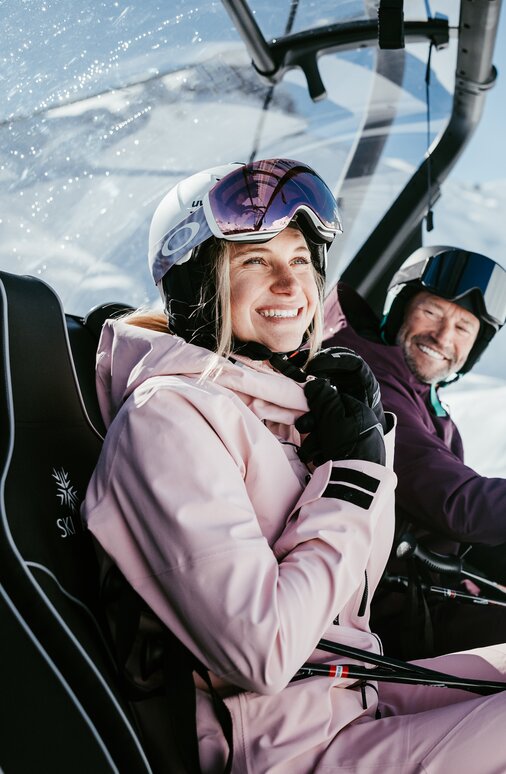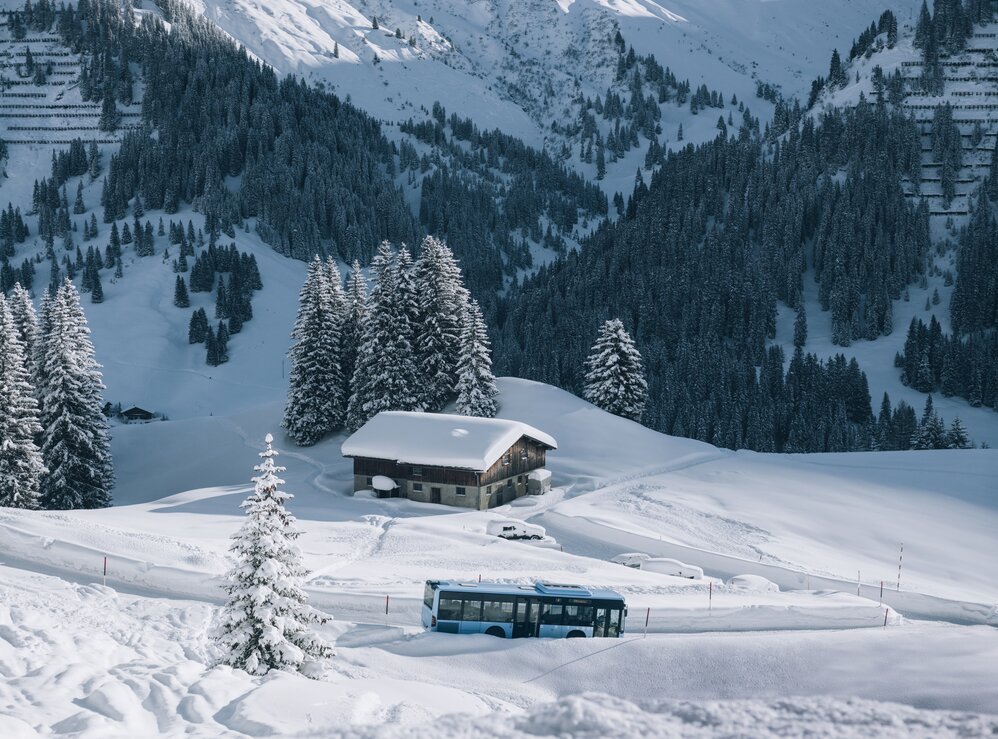
Sustainability in the Lech Zürs ski resort
Sustainability is not a trend in Lech Zürs, but a responsibility we uphold. The ski region integrates ecological initiatives, social responsibility, and economic awareness into a comprehensive sustainable approach.

Sustainable and responsible winter tourism
Superlative winter sports meet active responsibility: in the Lech Zürs ski region, sustainability is understood as a holistic principle – ecologically, economically and socially.
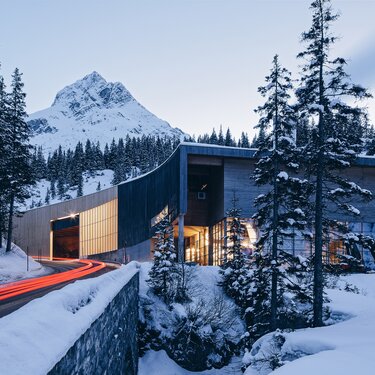
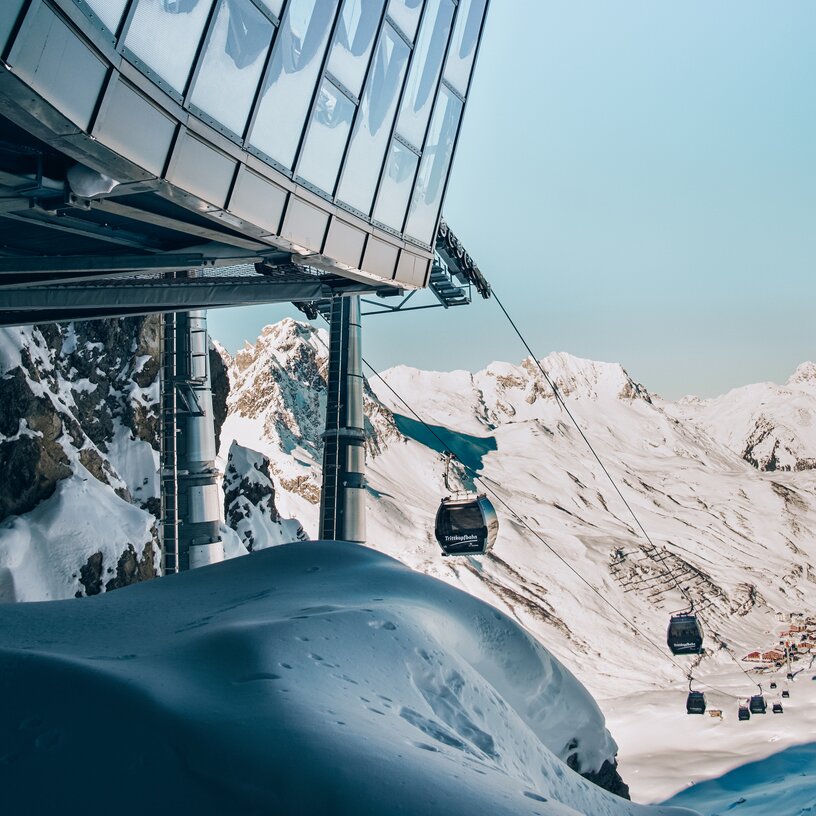
Measures for sustainable skiing
Sustainability is more than just a word. The cable car companies in Lech, Oberlech, and Zürs are dedicated to sustainable development, implementing a range of measures that respect both people and nature.
- 25% reduction in man-made snow production thanks to intelligent snow-depth measurement
- ISO 14001 and ISO 50001 certifications for environmental and energy management
- 100% operation powered by certified green electricity
- Use of regenerative frequency inverters
- E-charging points at valley stations of the cable cars
- Free of charge local and ski buses
- Europe's first "Green Garage"
Sustainability, added value and quality
Austria is one of the most sustainable holiday destinations in the world. Lech Zürs is recognised as an innovative pioneer, managing its Alpine natural treasures with care, responsibility, and foresight.
Sustainability information
What steps is the Lech Zürs ski resort taking to make skiing more sustainable?
All cable car companies in Lech, Oberlech, and Zürs run their cable cars, lifts, snow-making systems, and infrastructure entirely on electricity sourced from Austrian hydropower, solar energy, and other renewables. Since 2020, some of them have also exclusively purchased TÜV Austria-certified green electricity from illwerke vkw AG. In addition, they employ technological innovations such as regenerative frequency converters, as well as the use of braking energy and waste heat – an intelligent system designed to maximise energy efficiency.
Energy that isn’t used doesn’t need to be produced. The cable car companies consistently follow this principle across all areas of their operations. Since 2016, a certified energy management system in accordance with EN ISO 50001 has been in place, complemented by the ISO 14001 environmental management standard – two international benchmarks demonstrating measures to boost efficiency and protect the environment.
A network of smart energy meters has monitored consumption in real time since 2013, allowing cable car companies to identify potential savings and implement them effectively.
Conscious use of water and energy is especially important in technical snowmaking. Thanks to state-of-the-art snow groomers that measure snow depth down to the centimetre, the cable car companies produce only the snow that is truly needed. This precise snow-depth measurement reduces the requirement for man-made snow by around 25 percent, making a significant contribution to resource conservation.
In addition, snowmakers, pumps, and compressors are operated with maximum efficiency, saving energy and minimising the carbon footprint.
The cable car companies also act responsibly beyond the ski slopes. All company buildings are connected to modern biomass heating plants, supplemented by renewable systems such as geothermal energy, solar thermal, photovoltaics, and heat recovery technologies. Comprehensive energy management ensures transparency and optimisation.
Regionality is also a priority: for construction projects, infrastructure developments, and farm-to-table partnerships, the cable car companies favour local suppliers and producers. This supports the local economy and promotes sustainable cycles.
For the cable car companies in Lech Zürs, sustainability also means enhancing the quality of life for local residents. A prime example is the construction of the Zugerbergbahn cable car, which functions not only as a modern cable car but the valley station also provides employee housing. This dual purpose demonstrates how individual companies combine quality of life, efficiency, and environmental protection through innovative solutions.
As early as the 1990s, Lech Zürs prioritised the development of local public transport. Bus routes have been continually expanded to enable mobility without the need for a private vehicle. The free ski bus in winter is particularly popular due to its frequent service. Offering an alternative to car travel, the Lech local bus makes a significant contribution to reducing emissions. Even during peak season, Lech Zürs retains the atmosphere of a largely traffic-calmed zone.
Frequently Asked Questions
All cable cars, lifts, and snow-making facilities at Ski Arlberg Lech Zürs are powered 100% by electricity from renewable sources, primarily Austrian hydropower and solar energy.
Thanks to centimetre-precise snow-depth measurement, only the exact amount of man-made snow required is produced. This has already cut the need for artificial man-made snow by around 25 percent. Highly efficient snowmakers and pumps are also employed.
One example is the Zugerbergbahn, which functions not only as a cable car but the valley station also provides housing for employees. This enhances regional quality of life, reduces traffic, and combines technological innovation with social value.
Yes – regionality is a central principle of economic sustainability. Whether in construction projects or farm-to-table partnerships, the cable car companies collaborate with local suppliers and producers wherever possible, supporting regional value creation.



